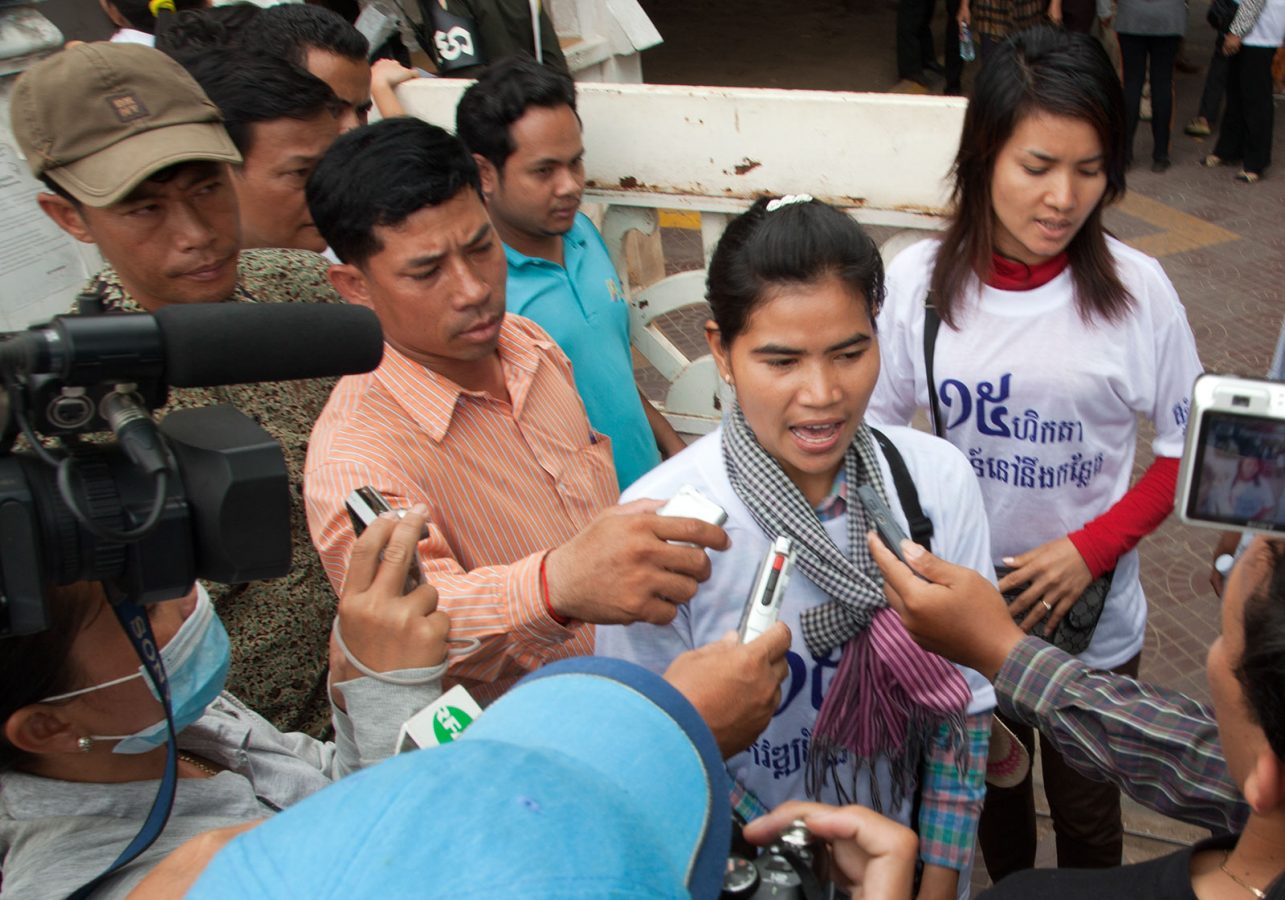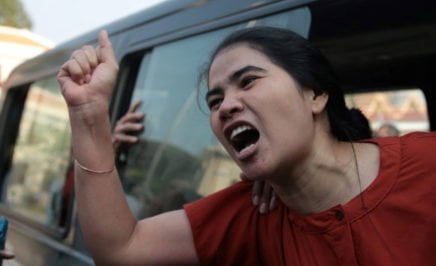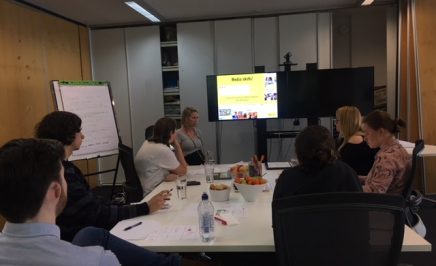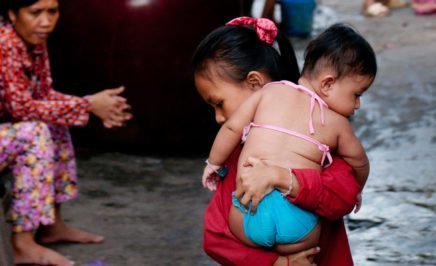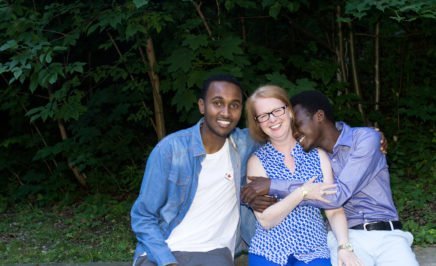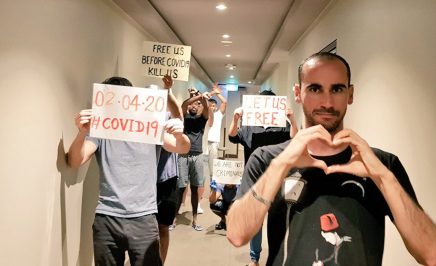Tep Vanny is a Cambodian human rights defender who spent more than 700 days in prison for her peaceful activism. Her only “crime” was standing up against a luxury tourist construction project which resulted in the forced evictions of thousands of people out of their homes in the Boeung Kak lake area of Phnomh Penh. Now back at her home, Vanny tells Amnesty International what gave her hope during her imprisonment, and how she continues to fight for justice in her community.
Imagine having to campaign for the right to live in your own house. Imagine being arrested and imprisoned for that.
I spent two years and five days in prison. I missed my children, and my mother, who is elderly and sick. They needed me, and it was horrible to think that I couldn’t comfort them. I did not know how to live from one day to the next. The only way was to make myself busy with work, and I did a lot of knitting! It helped reduce my stress and stopped me thinking too much.
There was plenty to think about. Before development began on the Boeung Kak lake area there were 4,252 families here. 3,000 have already been removed from the area to make way for a luxury development, houses have been bulldozed and there is nothing left of the lake. The remaining families need land titles to stay, but the government has only given these to 676 families so far.
The people in the Boeung Kak area first started protesting in 2007 – I only started participating in 2010. The numbers gradually grew as people started to understand that we were fighting for our children’s futures. We protested every day. There were many arrests and imprisonments. I have been jailed four times, and arrested at least 10 times, and the same has happened to others in my community. We still have not given up protesting, because we are willing to risk everything to defend our homes and land.
Since being released from prison, looking after my family has been my priority. But I am also carrying on my fight to end the land disputes in Boeung Kak. At the moment I am focusing on two families, and have asked the government to intervene by giving them land titles. These families have suffered for a long time in Boeung Kak — more than 10 years of suffering and uncertainty about the future.
I still worry about my safety and that of my family. I feel unsafe even though I am free.
Government spies continue to follow me, and some nights there have been violent Daun Penh district [an area in Phnom Penh] security guards driving back and forth on motorbikes taking pictures of me.
I want the world to know about these issues. The campaign to release me and other activists was so important, not only because it gave us strength but because it shone a light on the injustices we were fighting against. The Cambodian authorities would prefer these injustices to happen in the dark.
I want the evictions to stop, and I want to be able to live here in safety and freedom. I want the government to care about our human rights as much as they care about making money from developments.
I am really proud of what I have been able to do for the Boeung Kak community.
I was just an ordinary housewife, an ordinary person with a limited education and limited knowledge of social issues and the world. We got solutions for almost everyone. This is what I am proud of, even though I have been jailed.
When we face problems and we lose hope, we become weak and can give up what we are struggling for. So, I want people to not feel hopeless. We are innocent people who do not do illegal things. I think this means that success is waiting for us in the future – if we are prepared to struggle to reach our destination.
I never thought I’d be here, at home, talking to Amnesty International and surrounded by my family and community. Just being able to go in and out of our house freely and walk freely outside is a novelty.
I hold out my hand to thank those who have campaigned to get me free and to allow me to reunite with my children and parents. You comforted me and stopped me from feeling alone. I appreciate your kindness and your work to improve human rights around the world.
This story was originally published on Thomson Reuters Foundation.
